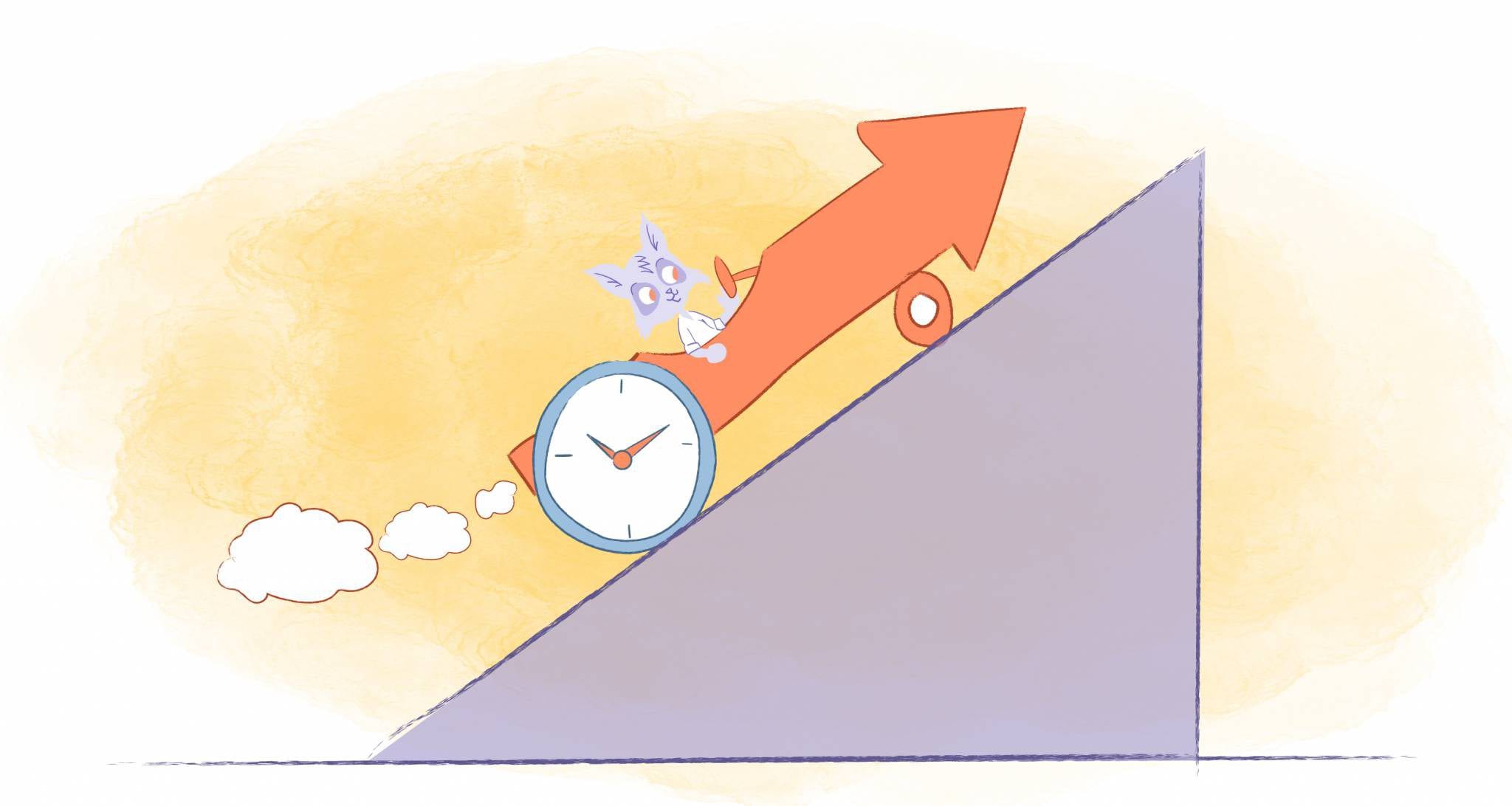

“A wise man has to always listen to the peers he surrounds around himself. That’s why you surround yourself with other smart people. Captain Kirk keeps Mr. Spock right beside him.” — RZA. Here is how raising your intelligence will spark productivity.
The RZA was right. In fact, it’s not a well-kept secret that the most successful and productive people repeat the same sentiment of surrounding themselves with other smart individuals. Everyone from Steve Jobs, Bill Gates, Warren Buffett, Russell Simmons, Dolly Parton, John Wooden, Marissa Mayer, and Oprah have at some point mentioned why they surround themselves with intelligent people. It challenges them and pushes them to change their perspective.
From my personal experiences, keeping the best minds around me has also helped make me become more empathetic, knowledgeable, and dare I say, intelligent? It has also guided me to live a more fulfilled and productive life.
As it turns out, your IQ can impact your performance and success. For instance, in 2004 research by Frank L. Schmidt and John Hunter, found that smarter people typically perform better at work. Why? They believe that the performance and productivity is better because if you’re smarter — you’re able to more quickly learn new skills.
Well, I might also add, that when I see the hustle of the really smart people around me — I kick into gear and work hard, hard, harder. Also, if you and I have really smart people around us — we can hurry and ask questions about work and tech — and they know the answers!
Other papers report that intelligence plays a factor in compliance, motivation, and educational attainment. And, some would even argue that it’s more important than emotional intelligence.
“Cognitive ability was more than five times more powerful than emotional intelligence,” wrote Wharton psychologist Adam Grant in 2014. “The average employee with high cognitive ability generated annual revenue of over $195,000, compared with $159,000 for those with moderate cognitive ability and $109,000 for those with low cognitive ability. Emotional intelligence added nothing after measuring cognitive ability.”
So, yeah. Having a high IQ can certainly have a positive influence on your life. But, how else can you increase your intelligence besides surrounding yourself with people who are smarter than you?
What is intelligence and can it be changed?
Before going any further, I think it’s best that we define what intelligence is. Unfortunately, Neel Burton M.D. states that there “is no agreed definition or model of intelligence. By the Collins English Dictionary, intelligence is ‘the ability to think, reason, and understand instead of doing things automatically or by instinct.’” he writes. “By the Macmillan Dictionary, it is ‘the ability to understand and think about things, and to gain and use knowledge.’”
Burton adds that “what constitutes intelligence can vary quite considerably according to our values and priorities.” But, most can agree that there are two types of intelligence: crystallized intelligence and fluid intelligence.
Crystallized intelligence is the knowledge, information, or skills accumulated in your brain. Some might refer to this as cerebral knowledge. And, because it’s easily tested on standardized exams, it’s probably what we’re most familiar with in Western cultures.
Moreover, it’s also easy to improve your crystallized intelligence. In fact, if you’re reading, listening to podcasts, or absorbing new information, which most of us do daily, then you are raising this type of intelligence.
But, that’s not the case with fluid intelligence. With this type, you’re taking what you’ve learned and applying in order to solve problems or perfect a new skill. To put it another way, fluid intelligence is what you need if you wish to become more aware and innovative.
Can you increase your fluid intelligence? Studies show that it’s possible through practice and training.
Here are seven ways to actually raise your intelligence — which in turn will make you more productive.
1. Exercise.
As pointed out in a Forbes article, exercise can make you smarter by increasing your energy and sharpening your focus. Moreover, it can improve your memory, mood, and helps control impulse control. And, yes, when put tighter, all of this will make you a lean, mean productivity machine.
The best type of physical activity? Cardiovascular fitness can increase verbal intelligence by a whopping 50 percent. They also perform better on cognitive tests.
2. Get enough sleep.
Some people like to boast about how much they get done by sleeping less. In reality, a lack of sleep destroys your productivity. That’s because it leads to cognitive interference. As a consequence, the cognitive interference can impair everything from your decision-making to the ability to form long-term memories to difficulty focusing on work.
To ensure that you get a good night’s rest, you need to keep a consistent sleep-wake schedule. More importantly, you should implement a relaxing evening routine. During this time, limit your exposure to blue light and do activities that help you unwind, like reading. When it’s time for bed, make sure your room is like a cave. That means it should be cool, dark, and silent.
I find that the Calm App helps me. Also meditation — with Calm app has made me feel supported in this journey.
3. Improve your relational skills.
Relational Frame Theory, or RFT, can be a complex theory to grasp. However, it’s merely how we relate one concept to another through language.
Recent research shows that relational frame skills training intervention has the ability to not only improve IQ, but also numeric and verbal reasoning. To strengthen this skill, partake in activities like comparing amounts and objects.
You can also learn a new language. Besides improving this skill, it can also help you become more attuned to auditory information while blocking out things that aren’t relevant. To achieve this, try out language learning books, apps like Duolingo, taking a class, or traveling abroad.
4. Meditate.
Meditating is one of the best things that you can do for mental and physical health. But, did you also know that it can also boost your IQ by 23 percent? And, according to another study, meditating for just 20-minutes for 4 days can improve cognition and working memory,
What’s the reason behind this? Well, there are actually several of them. Most notably, meditation balances the light and right brain and increases plasticity. It also gives your brain the chance to rest and recharge, boost intuition, and advance EI.
Best of all? It doesn’t take much of a time or monetary commitment to meditate. You can use apps like Headspace (it’s good – I usually use Calm), to guide you or simply practice mindfulness where you close your eyes and focus on your breathing.
5. Engage in stimulating conversations.
“In real life — outside the computer or mobile phone screen,” suggests Larry Kim. “The art of conversation requires that we think on our feet, and conversing with someone smarter than you can be a fantastic exercise in quick thinking as well as an opportunity to learn something new,” he adds. “Seek out interesting people and engage them in conversation, however brief.”
I would that you find opportunities to break out of your inner circle and converse with strangers — like when traveling. Besides opening up the possibility of meeting a new friend or business acquaintance, this can boost your confidence and challenge your perspectives. It can also improve your social skills and allow you to learn new and exciting information.
6. Seek novelty.
“It is no coincidence that geniuses like Einstein were skilled in multiple areas, or polymaths, as we like to refer to them,” writes Andrea Kuszewski for Scientific American. “Geniuses are constantly seeking out novel activities, learning a new domain. It’s their personality.”
In fact, the “one trait out of the ‘Big Five’ from the Five-Factor Model of personality (Acronym: OCEAN, or Openness, Conscientiousness, Extroversion, Agreeableness, and Neuroticism) that correlates with IQ, and it is the trait of Openness to new experience,” adds Kuszewski. “People who rate high on Openness are constantly seeking new information, new activities to engage in, new things to learn—new experiences in general.”
But, what exactly goes on when you seek novelty? “First of all, you are creating new synaptic connections with every new activity you engage in,” explains Kuszewski. “These connections build on each other, increasing your neural activity, creating more connections to build on other connections—learning is taking place.”
Secondly, “novelty can also release dopamine. Besides kicking “motivation into high gear,” it also “stimulates neurogenesis—the creation of new neurons—and prepares your brain for learning.”
“Always look to new activities to engage your mind—expand your cognitive horizons,” suggest Kuszewski. “Learn an instrument. Take an art class. Go to a museum. Read about a new area of science. Be a knowledge junkie.”
7. Play games.
Finally, you can raise your IQ by playing games. Of course, you have to select the right types. For example, chess is a proven way to connect the brain’s hemispheres. Other games that can improve your memory, focus, vocabulary, and visualization are crossword puzzles, Scrabble, Sudoku, and a good, old fashioned Rubik’s cube.
If you prefer to go digital, you can try playing the numerous cognitive games over at Lumosity. Or, you could play video games that involve puzzles or complex strategies. Your mom might not thrilled about this if you’re a kid — but I found video games an incredible way to connect to my kids.
Video games really help me concentrate, move faster, and think differently. You won’t find me bashing these tools — they’re incredible. How I wish I’d had some of these when I was a kid. And, research shows that video games can make you more intelligent.
They can also improve collaboration, working memory, and increase the white matter associated with greater cortical connectivity.
Conclusion
Right now we are in a really weird time. I call it the “covid-riot-economy-election collection,” CREEC for short –meaning “up-a-creek.” Hang on however you can. Build your endurance to this stress however you can. Be better than you can be — and let’s make this historical time count for something great.











Deanna Ritchie
Editor-in-Chief at Calendar. Former Editor-in-Chief and writer at Startup Grind. Freelance editor at Entrepreneur.com. Deanna loves to help build startups, and guide them to discover the business value of their online content and social media marketing.